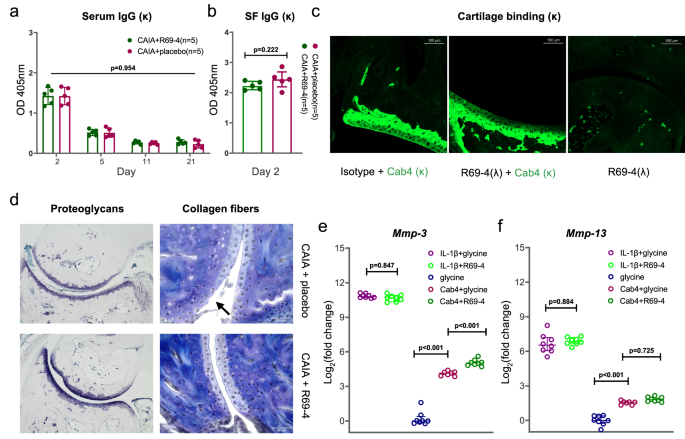December 2023

Gregg Fields, Ph.D., executive director of FAU’s Institute for Human Health and Disease Intervention (I-HEALTH) and a professor in the Department of Chemistry and Biochemistry in the Charles E. Schmidt College of Science, and Roma Stawikowska, laboratory coordinator, Department of Chemistry and Biochemistry, are part of a research team studying an autoimmune disease that affects 0.5 percent of the world’s population - rheumatoid arthritis (RA). More specifically, the team is studying the early stages of RA to examine if the autoantibodies that RA patients produce contribute to the initiation or progression of the disease.
“RA has no mechanism-based treatment at the present time,” said Fields. “By understanding the role of autoantibodies in the disease, we can potentially develop mechanism-based drugs or other treatment strategies for RA patients.”
Results of the team’s most recent study, published in 2023 in the journal Nature Communications, reveal that one of these antibodies could provide a potential treatment strategy and much-needed relief to long-suffering RA patients. The FAU team’s study is the first example to show that an RA autoantibody can prevent arthritis.
RA can lead to devasting physical effects, including structural damage, deformity, and disability. Approximately 75 percent of those affected by RA are women. Although its prognosis has been substantially improved since the introduction of disease-modifying anti-rheumatic drugs (DMARDs), RA remains a life-long disease without an efficient cure despite extensive research.
Nature, begun in 1869, is the world’s leading multidisciplinary science journal. It produces exceptional peer-reviewed research in all fields of science and technology, with a focus on originality, importance, timeliness, and accessibility. Each month, more than 8 million people visit Nature.com.